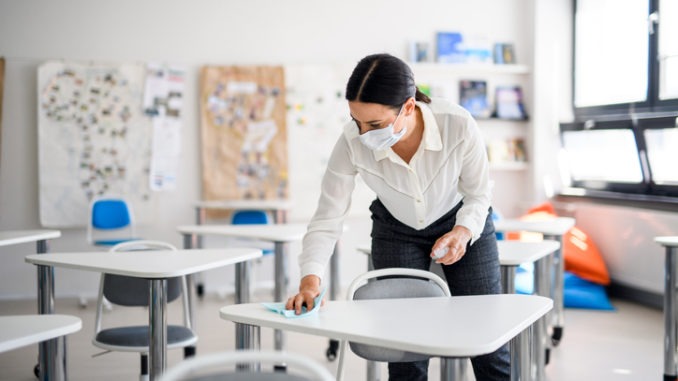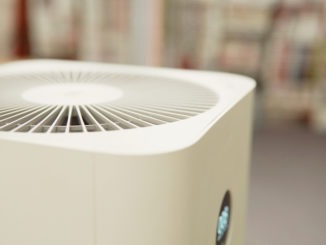
As reported by BBC News, plans to use ozone machines to disinfect classrooms have been abandoned, the Welsh government has confirmed
The machines are potentially “highly harmful” to children, a review found. Ministers were previously accused of making a “spectacular U-turn” after plans for the machines were paused for a safety review. Opposition parties Plaid Cymru and the Welsh Conservatives said they welcomed the move.
Welsh ministers had previously announced they would spend £3.31m on 1,800 new ozone machines developed by Swansea University. On Thursday, the Welsh government said this cash would instead be used in schools and colleges to improve ventilation. At the time Swansea University had defended the safety of the machines.
The university said “extensive testing had taken place over eight months” within its classrooms “as well as in three very different school scenarios”. However, the Welsh government said a Technical Advisory Group (TAG) review concluded that ozone machines are not suitable for use in education settings.
The review warned that the gas ozone, which can be used as a disinfectant “is a highly harmful indoor pollutant which is associated with harm to human health at low concentrations and damages diverse and integral components of indoor environments”. It found that children and those with underlying respiratory conditions were “particularly sensitive to ozone exposure” and that the gas “reacts with a range of compounds present indoors to generate persistent harmful secondary aerosols”.
The study also concluded that the evidence for effective ozone disinfection “is limited in scope and quality”. It said the deployment of an ozone machines would have required “substantial resources to ensure their safety”.
A Gwynedd-based GP, Dr Eilir Hughes, said when the initial announcement about the machines was made, he researched the technology, saying: “I quickly realised it was a very bad idea. I couldn’t even think of a single good reason for doing it.”
Speaking to Oliver Hides on BBC Radio Wales Breakfast, Dr Hughes said he believed it was “bad potentially for human health” and also the environment if it leaked. Dr Hughes also questioned if it would have been the most effective way of stopping the most dominant strains of COVID spreading.
The Welsh Conservatives’ education spokeswoman Laura Anne Jones said the Labour policy was “sadly not thought through” and that “educating our young people and keeping them safe has to be the priority”.
Sian Gwenllian, Plaid Cymru’s education spokeswoman, welcomed the move to “pull the plug on the controversial and ill-fated ozone machine scheme”, adding the earmarked funding should go towards improving schools’ air circulation.
However, the roll out of carbon dioxide monitors in classrooms, colleges and lecture halls in Wales is to be completed by mid-November, Wales’ education minister has said. The monitors will notify teachers and lecturers when CO2 levels rise, so they can identify where ventilation needs to be improved.
Wales’ education and Welsh language minister Jeremy Miles said the investment for ventilation improvements and carbon dioxide monitor roll out will “help keep transmission rates low”.
Laura Doel, director of teaching union NAHT Cymru, said the body is “pleased that additional funding will be made available to schools”, however Wales’ existing measures “do not go far enough to support schools”.
“It is crucial that schools do not end up having to foot the bill to fix ventilation problems,” she added.
David Evans, the National Education Union Cymru’s secretary, welcomed the ventilation investment, saying it was “critical to ensuring that education can remain open over the winter for as much of the time as possible”.




Be the first to comment